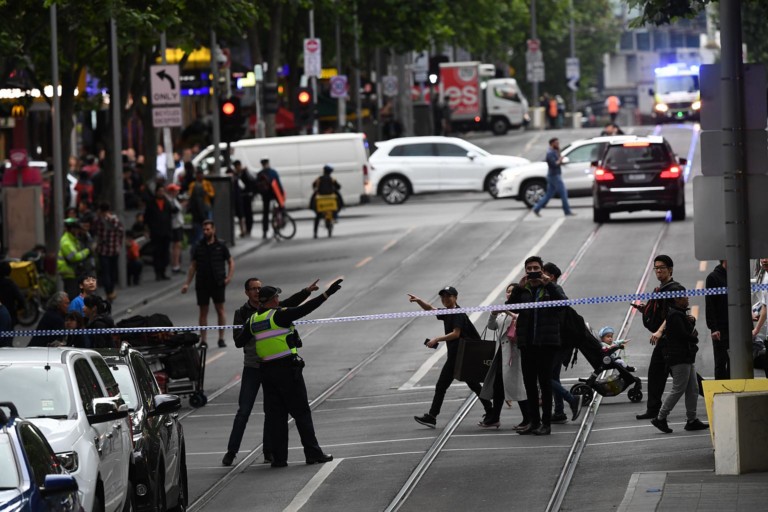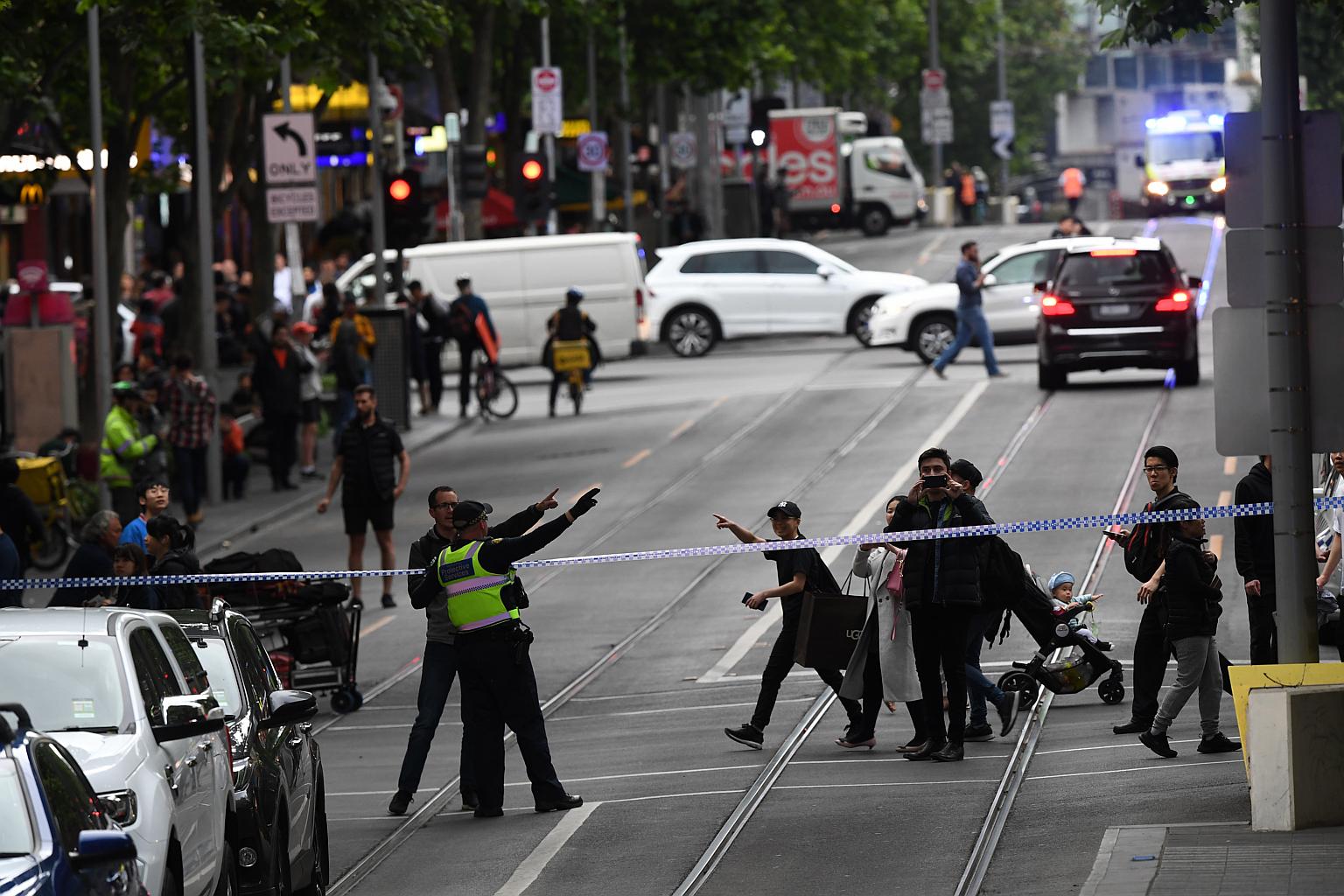 MELBOURNE: A Somali-origin man, who set a car on fire and stabbed three people, killing one of them, before being fatally shot in the Australian city of Melbourne, did not have a “definite link” to the dreaded Islamic State but was “inspired” by it, the government said here.
MELBOURNE: A Somali-origin man, who set a car on fire and stabbed three people, killing one of them, before being fatally shot in the Australian city of Melbourne, did not have a “definite link” to the dreaded Islamic State but was “inspired” by it, the government said here.
Hassan Khalif Shire Ali stabbed three members of the public and attacked police officers in the Bourke Street before he was shot and killed by the police.
The 30-year-old, who was driving a Ute, loaded with gas bottles, into the Bourke Street, allegedly set it alight and began stabbing members of the public.
Home Affairs Minister Peter Dutton said authorities did not believe Ali, who had his passport cancelled in 2015, was a member of the Islamic State and had not been known to be ready to act.
“There was no evidence available to the police… that any attack was imminent or that he had been part of planning,” Dutton told reporters.
“The judgment that was made (by authorities) was that he was not in the planning stage of an attack,” he added.
“In relation to his connections with ISIL (another name for IS) or with any terrorist group… there’s not, as I’m advised, a membership of an organization or a definite link to ISIL.”
However, the terror group’s propaganda outlet, Amaq, earlier said “The perpetrator of the operation… in Melbourne… was an Islamic State fighter and carried out the operation… to target nationals of the coalition” fighting the Islamic State.
“The working theory is at the moment, (it’s) a case where this person has been downloading information or receiving messages in his own mind about what he should be doing. It’s an inspiral (sic) as opposed to affiliation,” Duton said.
There was “no evidence” available to intelligence services that the terrorist behind the Bourke Street stabbings was preparing an imminent attack, Dutton added.
He added that the Australian intelligence agencies were in touch with their UK and US counterparts to see if other technological solutions were available to assist in analyzing thousands of document.
He said over 400 people were being probed by police and intelligence services but need a tip-off or alert from the public to stop a spontaneous act.
“It is important for us to get as much information from the imams, from spouses, family members, community members, council workers, people that might be interacting with those that might have changed their behaviors, that they think have been radicalized,” he said in Brisbane.
Dutton said the government’s community engagement programs, including those run by his department, are helping and have led to effective intelligence gathering.
However, a tip-off could have backed up the apparent gap in intelligence and potentially stopped such “an unsophisticated attack.”
Dutton said technology, including encrypted apps, had made it harder for authorities to tap phone calls or keep tabs on people of interest.
“There is a real black spot for us and that is a vulnerability,” he said.
Acting Deputy Commissioner for national security Ian McCartney said that, “It’s fair to say he was inspired.”
Shire Ali’s passport was cancelled in 2015 when the Australian Security Intelligence Organization believed he was planning to travel to Syria, McCartney said.
More than a dozen terrorist attacks have been prevented in recent years in Australia, but several have taken place, including a cafe siege in Sydney in 2014 where several people, including an Indian techie, were taken hostages and two were killed. PTI







